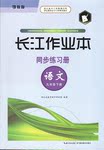题目内容
Last winter Southeast China was struck by snows, from ______ effects the people are still suffering.
A. what B. which C. whose D. that
C

练习册系列答案
 长江作业本同步练习册系列答案
长江作业本同步练习册系列答案
相关题目
— I heard they went skating in the mountains last winter.
— It _____ true because there was little snow there.
|
A.may not be |
B.won’t be |
C.couldn’t |
D.mustn’t be |